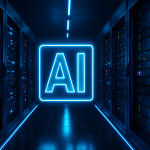Elon Musk’s AI company xAI is facing notable internal changes as several high-profile executives have recently left their positions. This wave of departures could impact the company’s performance and focus in a competitive AI landscape. Despite its rapid rise since its inception, xAI’s internal challenges are drawing attention alongside its technological advancements like the Grok chatbot.
In earlier developments, xAI attracted top talent from tech giants like OpenAI and Google (NASDAQ:GOOGL), aiming to leverage their expertise. However, the recent executive turnover contrasts with xAI’s promising start. Notably, three of the company’s initial co-founders, including Kyle Kosic, who moved to OpenAI, have exited the firm, highlighting the challenges in retaining leadership in its high-stakes environment.
What is the Impact of Liberatore’s Departure?
Mike Liberatore, who took on the role of CFO at xAI after an eight-year tenure at Airbnb, has recently departed from the company. During his stint, he was instrumental in fundraising efforts and data center expansions. This unexpected exit raises questions about the stability of leadership at xAI as it navigates the competitive AI sector.
Who Else Has Departed from xAI?
Aside from Liberatore, Raghu Rao, previously xAI’s commercial lead, has also left the organization. His exit follows that of Robert Keele, who served as xAI’s general counsel. Keele expressed his departure was influenced by family reasons and described the role as “an adventure of a lifetime.” Such multiple resignations put the spotlight on the company’s internal dynamics.
The churn in xAI’s executive ranks doesn’t end here. Among the more significant changes, co-founder Igor Babushkin has left to start his venture capital enterprise aimed at AI startups. Musk publicly acknowledged Babushkin’s role, stating,
“We wouldn’t be here without you,”
underscoring his significance within the company.
Not all separations have been amicable. Xuechen Li, another former team member, became the center of a legal dispute, where xAI accused him of transferring proprietary information to a new position at OpenAI. The legal outcome saw xAI securing a court injunction temporarily preventing Li from assuming his new role.
As executives continue to leave, the importance of stabilizing leadership cannot be overstated. Creating a conducive environment for innovation and retaining talent will be crucial. xAI’s ability to effectively manage these transitions will play a critical role in its sustained progress and credibility in the AI sphere.
While the departure of executives could disrupt operations, if managed adeptly, it also presents an opportunity for xAI to recalibrate its goals and build a more cohesive leadership. Understanding these developments offers insights into the operational challenges and strategic decisions facing burgeoning tech companies.










